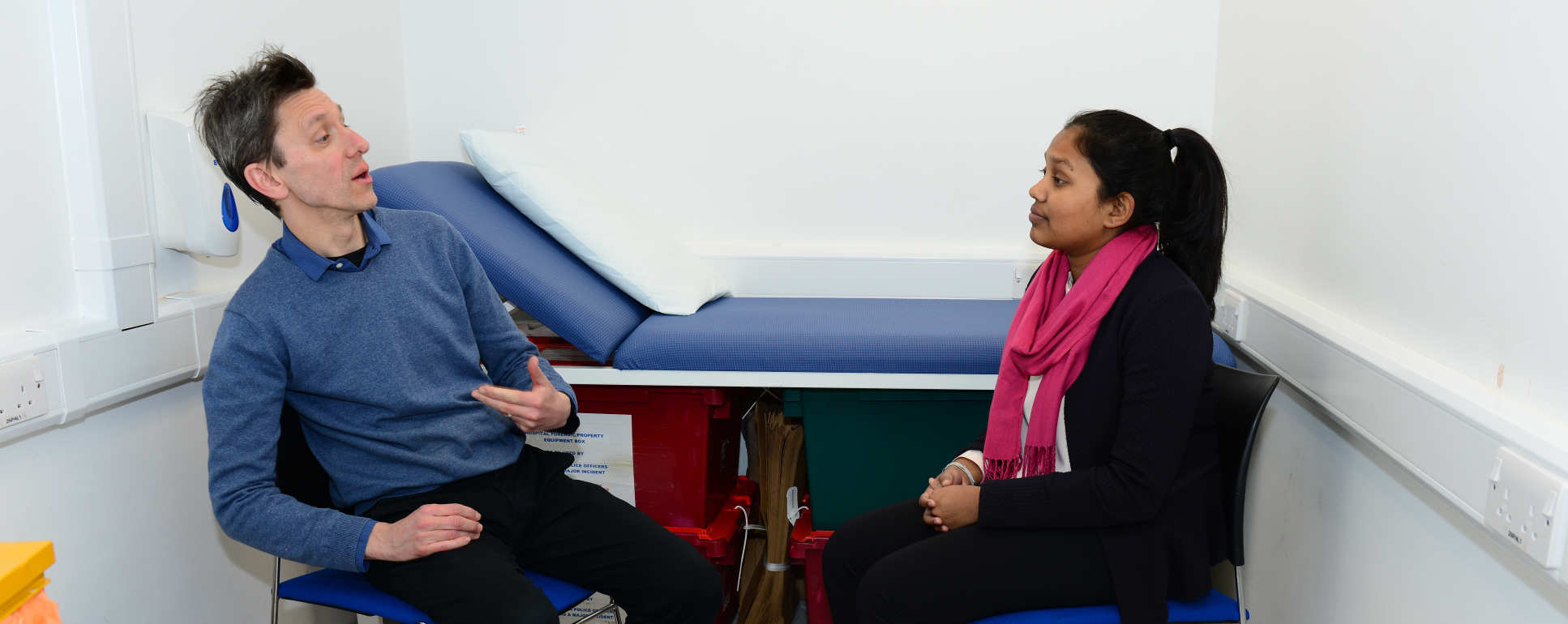
What is clinical communication?
Clinical communication is a programme designed to introduce and develop patient centred communication skills. The first year of Clinical Communication is designed to provide the foundational skills of patient centred communication through comprehensive communication skills training alongside simulated patient encounters. This foundation is extended in the second year to link directly with the core clinical skill of taking a medical history. In years 3-6 Clinical Communication is integrated more closely with clinical practice and topics covered include, information giving, breaking bad news, communicating with a patient whilst performing a minor procedure and inter-professional communication.
How will it help me?
Clinical Communication covers all the necessary technical skills and conceptual approaches to equip you for different kinds of interactions. Utilising simulated patient encounters, lectures and small group interactive sessions, Clinical Communication provides a fully integrated and comprehensive approach to the doctor-patient encounter.
Clinical communication across the years
The first year of clinical communication is designed to provide students with the foundation for patient centred medicine through comprehensive communication skills training alongside simulated patient encounters.
Throughout the second year, students are required to develop what they have learned about the process skills of doctor-patient interaction with some of the basic content requirements of medical practice e.g. taking a patient’s history. This is very much the focal point of Year 2.
In these early years students are provided with the blueprint of concepts and techniques, which should equip them for their remaining time as students and beyond.
Clinical Communication is integrated more closely with clinical practice as students progress through medical school and in Years 3-6 topics covered include:
- giving information about procedures
- explaining risk information to patients
- dealing with aggressive and violent patients
- communicating difficult news to patients and their relatives
- communicating while conducting procedures
- communicating with other health care professionals
In year 5 the focus on integration with clinical practice is retained and sessions involve learning advanced skills in relation to difficult clinical scenarios. These sessions often involve clinicians.
Student endorsements
The Simulated Patient interview was a very enjoyable and informative session, allowing us to learn and appreciate the skills we are developing in this module. The course was very well structured and taught so thank you very much"
Year 1 student
Just wanted to pass on my personal satisfaction at the improvement of the assessment for your module since last year. I almost enjoyed the video exam and definitely agree it is a much better way of testing the learning outcomes"
Year 2 student
Great interactive session and very interesting and useful lecture. I now feel more prepared for the OSCEs"
Year 3 student